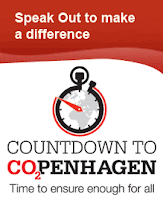The saying goes that a journey of a thousand miles begins with a single step, so I guess you must start at square one before you can progress any further. The first plan of action is to define who Christian Aid is and what they do.
Christian Aid was founded in 1945 originally to offer relief and reconciliation for post-war Europe. Today it has evolved as an organization that focuses on international aid regardless of race or religion.
The main claim of Christian Aid is that the desire "life before death". Life before death is a motto that is derived from the desire to eradicate all poverty and injustice in the world. They long to give the poor and marginalized of the world hope and not a shadow of hope, but hope that is tangible. Tangible hope through the means of food, clean water, education, health care, and a chance at making an income.
While talking about Christian Aid it would be missing a crucial element of their organization if we didn't talk about their faith. The Christian Aid belief statement is as follows:
Christian Aid's work is founded on Christian faith and powered by hope. It acts to change an unjust world through charity, providing practical love and care for neighbors in need. It is driven by the gospel of good news to the poor, and inspired by the vision of a new Earth where everyone lives in justice, peace and plenty.
As one can see Christian Aid's faith is the driving element behind what they do. They desire to give of themselves because Jesus gave of himself. They actually believing in walking the walk and not just talking the talk.
Practically speaking Christian Aid desires to be an agent of change in this world. They have three practical aims which they define as:
- To deliver real, practical benefits on the ground-they serve where the need is the greatest to end poverty and suffering. They strive for relief and long term development among nations with the greatest struggle.
- To speak out when there is injustice- they speak out against the government, even at the peril of their own life, to bring about change for those in poverty.
- To campaign for change-With nearly 100,000 campaigners and hundreds of thousands of supporters Christian Aid tells governments, companies and institutions what part they need to play in ending poverty.
So that's square one of Christian Aid and I will be looking forward to taking the next step with you all as we follow Christian Aid and their efforts to end poverty and injustice.












